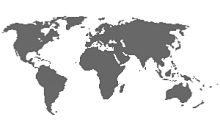
An overwhelming ratio of new Canadians who are parents want to leave a financial legacy to their children, but that is not necessarily reflected in their financial plans, according to a survey conducted for Toronto-based Bank of Montreal’s wealth-management arm.
Approximately two-thirds (65%) of parents who have immigrated to Canada within the past 10 years say it’s a priority to leave a much money as possible to their children while 29% state they would like to do this if possible. However, 42% say they don’t have any legal documents related to estate planning. Only about one-third (32%) of those polled have a will and 29% have declared their powers of attorney.
This is an area in which financial advisors can help guide new Canadians if advisors understand the importance of these issues to immigrant prospective and existing clients, says Michael Wood, senior vice president and managing director with Toronto-based BMO Nesbitt Burns Inc., a part of BMO Wealth Management, in Calgary.
“And then it’s having that discussion about what they need to do to create that plan, [which can include] discussions about wills and estate planning in order to secure that future for their kids,” he adds.
The BMO Wealth Management study, released on Friday, is the second in a series entitled Making the financial transition that examines various issues related to individuals who have resided in Canada for 10 years or less. This particular survey gathered the opinions of new Canadians regarding their children’s future in this country.
For example, more than half (58%) of new Canadians believe their children will be better off in Canada than in their native countries and 33% say their children will be much better off. One key area for these respondents is education, with 95% saying that it’s likely their children will obtain a post-secondary education and 72% saying they feel their children will actually have access to better education.
Informing prospects and clients about tools, such as registered education savings plans, that can help them save for this education is part of the guidance advisors can provide to help prepare new Canadians for the cost of post-secondary education, Wood says.
However, he recommends going beyond the discussion of products and embarking on a thorough discovery process to understand the history of these individuals and their goals for a new life in Canada.
“Those who take the old-school approach of setting up a savings plan or talking about investment portfolios are missing the bigger opportunity if they’re not learning more about the prospects,” Wood says, “and what they’ve been exposed to in the past to understand how we can advise them.”
For example, some immigrants may not be used to saving money and instead consider their funds solely for the purpose of living day-to-day. An advisor who understands this about new Canadians can them help prepare for the future by teaching them about what a financial planning entails and then prepare one for them, says Wood.
It should also be noted that developing this knowledge about new Canadians will require more than one discussion. In fact, Wood adds, it’s an ongoing element of building a relationship.
Pollara Inc. conducted the survey for BMO Wealth Management from Feb. 4-19 using an online sample of 507 people who have moved to Canada within the past 10 years.